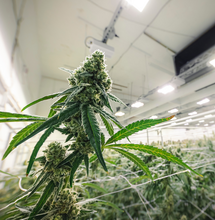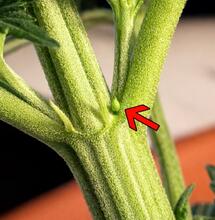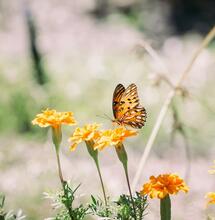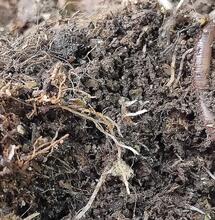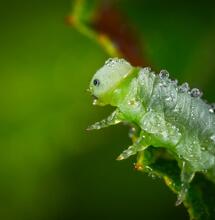How Insects Are Friends and Enemies in Cannabis Growing
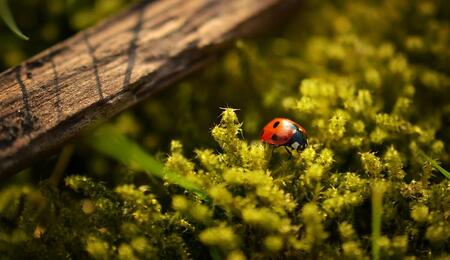
Nobody likes bugs in their cannabis garden. Bugs and insects is one of the worst things that could happen, right? However, cannabis growers may actually harness the power of some beneficial insects. Two great examples are ladybugs and green lacewings. These tiny critters are not enemies, but friends in cannabis growing. Their presence in the garden can help you protect plants and thus enable higher yields and better-quality buds. In this article, learn more how to take advantage of beneficial insects, protect your outdoor crops from bugs, and have a more successful cannabis grow operation.
As a grower, you should be able to take care of various aspects of cultivating your own cannabis medicine. From watering and feeding nutrients to your plants, to training them when needed, and also making sure they are safe from pests, among other things. Infestation on your cannabis crops could be a serious issue, and the more you let any uninvited tiny guests stay in the grow area, the more problems they will bring.
You Can Use Insects to Get Rid of Insects in Your Cannabis Garden
Insects can come after cannabis plants in both outdoor and indoor gardens. Everything can go wrong when you have to deal with the wrong bugs, or the insects that are hostile to the cannabis grow process. Therefore, cultivating cannabis requires utmost attention to detail. It takes extra caution if you suspect invasion, and avoid for example, cannabis aphid damage, or root deterioration, or rotten buds caused by other nasty pests.
Unwelcome visitors are more likely to appear when growing outdoors or somewhere in the wild. Especially if you haven’t taken care of what other flowers, plants, trees and wildlife there is in the area. But you can also bring insects inside, in an indoor grow setting, by working with unclean tools or using low-quality soil mixes that might be contaminated before you even open them.
Most cannabis problems caused by enemy insects usually show through symptoms on the leaves. Some insects specifically target buds or roots, and basically all of them can threaten the entire harvest. But not all bugs will cause damage to your cannabis plants. Not all of them are after your buds, stems and flowers.
Which Insects Can Be Beneficial When Growing Cannabis?
There are a few insects that can be your friends in cannabis growing. Let’s take a look at which bugs can help you eliminate other bugs, or at least indicate something might be going on around the garden.
Ladybugs
Ladybugs can be a great ally when you have to fight aphids, which are actually one of the most common pests known to swarm over cannabis crops. These sap-sucking little devils are almost invisible but they are not invincible if you catch them early on. Otherwise, they can ravish all your cannabis, stunting the growth of plants, and could even transmit other diseases.
If you grow outdoors and you suddenly have to deal with aphids, one of the best things you can do is introduce ladybugs in the garden. These brilliant and voracious predators are noted for their unquenchable appetite for aphids, able to consume dozens of them in a day. Therefore, ladybugs are the perfect “organic” remedy for controlling aphid populations.
In case ladybugs are not an option for you, there are other pesticide-free ways to use and shield your cannabis plants from aphid damage. Washing the leaves with garlic oil or a vinegar and water mixture will clean the leaves from aphids and make sure they don’t return. Because aphids hate these solutions the same as they hate ladybugs.
Ants
Ants can be both friends and enemies when growing cannabis. Ants can be used in the outdoor cannabis pest identification, more precisely identification of aphids. Which is the first step in fighting foreign invaders! The presence of ants and ant colonies in your outdoor garden could be a pointer for aphids. But while you can thank ants later for being the sign sent from earth, ensure you remove them as well from the garden. Because ants dig tunnels and they do tend to harm the roots of cannabis plants.
Predatory mites
Now, there are few more important bug friends. And those are the predatory mites. Friendly mites that can eat and eliminate the presence of enemy spider mites and other minibeasts. The green lacewing is one such great predatory insect that can be extremely useful in cannabis growing. It can be introduced in the cannabis garden to get rid of enemy insects such as thrips, whiteflies, mealybugs, spider mites and also aphids. When you want lacewings to stay in the garden, it’s recommended to plant other native wildflowers as well, as that will provide additional source of nutrition for the lacewings.
Spider mites can also be battled with other predatory mites, which depending on the type can either slow down their progress or eradicate them fast within the webbings. Species like Neoseiulus californicus are often used to protect and deter spider mites from cannabis crops. Even when there is not enough spider mites on the cannabis for these bugs to feed on, they can leech on other food sources like fungal spores. Second is Phytoseiulus persimilis, a more serious repellent that can be used to eliminate spider mite hotbeds fast and furious.
And third is Feltiella acarisuga, the raptorial solution for those growing cannabis in more humid environments. It’s a type of midge that produces predatory larvae that again feast on spider mites. After it grows, this insect can fly to the spider mites source and find them even when they hide in the sticky resin and flower buds.
What Are the Benefits of Using Insects for Pest Control in Cannabis?
Fighting bugs with other bugs might sound a bit weird at first, but it can really work as a natural way to get rid of enemy insects in your cannabis garden.
Here are few more more arguments why this could be a great idea:
- Using friendly insects in pest control minimizes the need for synthetic pesticides (although there are organic solutions for deterring almost every type of insect)
- It reduces risk of pesticides use on your own health
- You are sticking to organic grow of cannabis
- You learn something new about nature and the delicate ways balance is achieved.
Also read on Soft Secrets:
